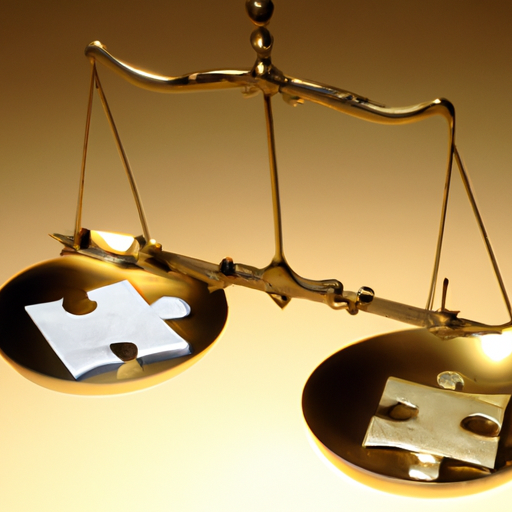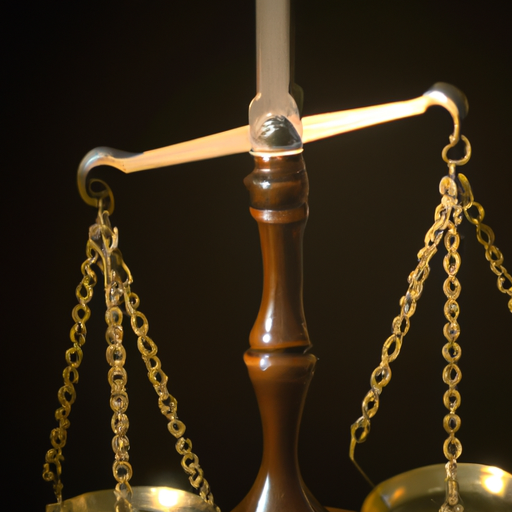Do you find yourself facing a probate dispute? Don’t fret, because in this article we will explore the various legal resolution strategies available to help you navigate through this complex process. Whether you are contesting a will, disputing the distribution of assets, or dealing with disagreements among beneficiaries, knowing your options is key to achieving a favorable outcome. From negotiation and mediation to litigation and arbitration, attorney Jeremy Eveland has the expertise and experience to guide you through your probate dispute and ensure that your best interests are protected. So sit back, relax, and let’s delve into the world of probate disputes and the legal resolution strategies that will put your mind at ease.
Understanding Probate Disputes
Probate disputes can be complex and emotionally challenging situations that arise during the administration of an estate. It is important to have a thorough understanding of the various aspects of probate and the potential causes of disputes in order to navigate these situations effectively. In this article, we will delve into the definition of probate disputes, the role of probate in estate administration, key elements of probate disputes, legal strategies for resolving them, how to choose the right resolution strategy, the importance of consulting with an experienced probate attorney, and how to prepare for probate dispute resolution. Let’s explore these topics in detail.

Definition of Probate Disputes
Probate disputes refer to conflicts and disagreements that arise during the probate process, which is the legal procedure of administering an estate after someone’s passing. These disputes can involve various parties, such as beneficiaries, creditors, personal representatives, and other interested individuals. The issues at the center of probate disputes usually revolve around the validity of the will, interpretation of its provisions, and the distribution of assets and debts. Resolving probate disputes requires careful consideration of legal strategies and a thorough understanding of the probate process.
Common Causes of Probate Disputes
Probate disputes can stem from a variety of causes. One common cause is when beneficiaries believe they were unfairly treated in the distribution of assets or debts. Disputes may also arise if there are questions regarding the validity of the will, such as allegations of fraud, undue influence, or lack of testamentary capacity. Additionally, conflicts may arise when there are multiple wills or when a will does not adequately address certain assets or family dynamics. Disputes can also be triggered by disagreements among family members or personal representatives regarding the interpretation of the will’s provisions. Understanding the common causes of probate disputes can help you identify potential problems and address them appropriately.
The Role of Probate in Estate Administration
It is important to grasp the role of probate in estate administration in order to better understand the context in which probate disputes occur. The probate process involves several stages, including the collection and valuation of assets, payment of debts and taxes, and the final distribution of the remaining assets to the beneficiaries. The court oversees this process to ensure compliance with the decedent’s wishes and applicable laws. Executors and personal representatives play a crucial role in administering the estate and carrying out the probate process. They are responsible for fulfilling legal obligations, managing assets, communicating with beneficiaries, and resolving disputes that may arise during probate.
Explanation of Probate Process
The probate process can vary depending on the laws of the state where the estate is being administered. Generally, it involves filing the will with the probate court, notifying interested parties, gathering and appraising the assets, paying off debts and taxes, and distributing the remaining assets according to the will. The court oversees this process to ensure that the decedent’s wishes are carried out and that all legal requirements are met. The probate process can be time-consuming and complex, and disputes can arise at any stage. Understanding the intricacies of the probate process is crucial to effectively navigate probate disputes.
Importance of Executors and Personal Representatives
Executors and personal representatives have significant responsibilities in the probate process and play a crucial role in estate administration. They are entrusted with managing the assets, paying outstanding debts and taxes, and distributing assets to beneficiaries according to the terms of the will. Executors and personal representatives must act in the best interests of the estate and its beneficiaries, which can sometimes lead to conflicts with interested parties. Having capable and trustworthy individuals appointed as executors or personal representatives is essential to ensuring a smooth probate process and minimizing the risk of disputes.
Key Elements of Probate Disputes
Various key elements are involved in probate disputes, and understanding these elements is paramount to resolving such disputes effectively. Identifying the parties involved is crucial, as disputes can arise among beneficiaries, personal representatives, creditors, or other interested individuals. Assets and debts in question need to be identified and valued accurately to determine their allocation. The validity of the will may be challenged, requiring careful examination of the circumstances surrounding its creation. Additionally, the interpretation of the will’s provisions can be a significant point of contention, as beneficiaries may have different interpretations that need to be resolved.
Identifying Parties Involved
In probate disputes, it is essential to identify all parties involved to navigate the resolution process effectively. Beneficiaries, personal representatives, and creditors are common parties in probate disputes. Beneficiaries are individuals named in the will who are entitled to receive assets from the estate. Personal representatives, also known as executors or administrators, are responsible for managing the estate and carrying out the probate process. Creditors are individuals or entities owed money by the deceased. Identifying all parties involved is crucial to understanding their respective interests and perspectives, which can help guide the resolution strategy.
Assets and Debts in Question
An important aspect of probate disputes is determining which assets and debts are in question. Assets can include real estate, financial accounts, personal property, and other valuables owned by the deceased. Debts can encompass mortgages, loans, credit card balances, and outstanding bills that need to be paid off from the estate. Accurately identifying and valuing the assets and debts is crucial to ensure a fair distribution of the estate and to resolve potential disputes that may arise regarding their allocation.
Validity of the Will
The validity of the will can be a central point of contention in probate disputes. Challenges to the validity of a will can arise if there are allegations of fraud, undue influence, coercion, or lack of proper execution. If the court determines that the will is invalid, it may disregard its provisions or consider an earlier valid will or state law to determine how the estate should be distributed. Resolving disputes related to the validity of a will requires a careful examination of the circumstances surrounding its creation and execution.
Interpretation of the Will
Interpreting the provisions of a will can lead to disputes if beneficiaries have different understandings or expectations regarding their rights and entitlements. Ambiguous language, conflicting clauses, or omissions in the will can give rise to conflicting interpretations. Resolving disputes related to the interpretation of a will often requires legal analysis, knowledge of applicable case law, and an understanding of the decedent’s intent. It is essential to seek professional guidance from an experienced probate attorney to accurately interpret the provisions of the will and resolve any disputes that arise.
Legal Strategies for Resolving Probate Disputes
When it comes to resolving probate disputes, several legal strategies can be employed. Negotiation and mediation are often the first line of defense in these situations, as they provide an opportunity for parties to come to a mutually agreeable resolution through facilitated discussions. If negotiation and mediation do not yield satisfactory results, litigation and court proceedings may become necessary. Alternative dispute resolution methods, such as arbitration or binding mediation, can also be considered to streamline the resolution process. The selection of the appropriate legal strategy depends on various factors, including the complexity of the dispute, the level of cooperation between parties, and the desired outcome.
Negotiation and Mediation
Negotiation and mediation are frequently employed to resolve probate disputes due to their potential to facilitate constructive discussions and ensure a fair resolution. These processes involve engaging in open and honest conversations with all parties involved, guided by an unbiased mediator who facilitates communication and promotes understanding. Negotiation focuses on reaching a mutually acceptable agreement through compromise, while mediation allows for more in-depth discussions and exploration of various potential solutions. Both negotiation and mediation provide an opportunity to preserve relationships and reduce the cost and emotional toll of litigation.
Litigation and Court Proceedings
In some cases, negotiation and mediation may not be sufficient to resolve probate disputes, requiring the parties to turn to litigation and court proceedings. Litigation involves bringing the dispute before a court, where each party presents evidence, arguments, and legal positions to support their respective claims. The court then makes a final decision based on the evidence and applicable laws. Litigation can be a lengthy and costly process, and the outcome may not always align with the preferences of the parties involved. However, it is sometimes necessary to seek resolution through a court to protect your rights and ensure a fair distribution of the estate.
Alternative Dispute Resolution Methods for Probate Disputes
Alongside traditional litigation, alternative dispute resolution methods can offer viable options for resolving probate disputes. Arbitration or binding mediation involves submitting the dispute to a neutral third party, who evaluates the evidence and arguments presented by each party and renders a binding decision. Collaborative law is another alternative method that promotes cooperation and creative problem-solving through the joint efforts of the parties and their attorneys. When considering alternative dispute resolution methods, it is important to assess the feasibility, cost, and potential benefits of each option.
Choosing the Right Resolution Strategy
Choosing the right resolution strategy is crucial when facing probate disputes. Factors such as time, cost, emotional impact on family relationships, and desired outcomes should be carefully considered. Negotiation and mediation can be effective in preserving relationships and reaching mutually satisfactory agreements, but they may not always be possible or yield desirable results. Litigation and court proceedings may be necessary to protect rights and ensure a fair distribution of the estate, but they can be time-consuming, expensive, and emotionally draining. Alternative dispute resolution methods provide additional options to streamline the resolution process and achieve a fair outcome. Consulting with an experienced probate attorney can help you navigate the complexities of probate disputes and determine the most suitable resolution strategy for your specific circumstances.
Consulting with an Experienced Probate Attorney
Seeking professional guidance from an experienced probate attorney is crucial when dealing with probate disputes. A knowledgeable probate attorney can provide comprehensive advice, guide you through the intricacies of the legal process, and help you understand your rights and options. They can assess the strengths and weaknesses of your case, identify potential strategies, and develop a strong legal strategy tailored to your specific needs. Expert legal guidance can significantly increase the chances of achieving a favorable resolution and protect your interests throughout the probate dispute resolution process.
Importance of Professional Guidance
Navigating probate disputes can be challenging, and having professional guidance is of utmost importance. An experienced probate attorney possesses the knowledge, skills, and resources necessary to handle these complex legal matters. They can guide you through the probate process, help you understand the legal requirements, and advocate for your rights and interests. With their expertise, you can navigate the challenges of probate disputes more effectively and achieve a resolution that is fair and favorable to all parties involved.
Assessment of Your Case
An initial assessment of your probate dispute case is an essential step in determining the appropriate legal strategy. During this assessment, a probate attorney will review the relevant documents, gather information about the parties involved, understand the nature of the disputes, and assess the strengths and weaknesses of your case. This assessment allows the attorney to identify potential legal issues, formulate a preliminary legal strategy, and provide you with an understanding of the options available to you. By conducting a thorough assessment, an experienced probate attorney can provide you with the insights and guidance necessary to make informed decisions throughout the probate dispute resolution process.

Building a Strong Legal Strategy
Building a strong legal strategy is crucial when it comes to resolving probate disputes. A probate attorney can leverage their knowledge of probate laws, legal precedent, and their experience with similar cases to develop an effective legal strategy tailored to your specific circumstances. This strategy may involve gathering evidence, conducting legal research, identifying expert witnesses, preparing arguments, and anticipating potential counterarguments. By building a strong legal strategy, your probate attorney can advocate for your rights and interests, increase the likelihood of a favorable resolution, and mitigate the potential negative impact of the probate dispute on your life.
Preparing for Probate Dispute Resolution
Effective preparation is key to navigating the probate dispute resolution process successfully. This involves gathering all relevant documentation, identifying potential witnesses, understanding state laws and procedures, and anticipating potential issues and objections. Gathering relevant documentation, such as the will, financial records, and communication regarding the estate, is crucial for building a strong case and supporting your claims. Identifying potential witnesses who can provide relevant testimony or evidence can strengthen your position. Familiarizing yourself with state laws and procedural requirements ensures compliance and avoids potential pitfalls. Anticipating potential issues and objections allows you to proactively address them and strengthen your legal position.
Gathering Relevant Documentation
Gathering all relevant documentation is crucial when resolving probate disputes. The documentation may include the will, any amendments, financial records, communication regarding the estate, and any other evidence that supports your claims or challenges those of the opposing party. Thoroughly organizing and presenting this documentation can significantly enhance the strength of your case and help facilitate the resolution process. An experienced probate attorney can assist you in identifying the necessary documentation and preparing it in a manner that enhances its effectiveness as evidence.
Identifying Potential Witnesses
Identifying potential witnesses is an essential step in gathering evidence and strengthening your position in probate dispute resolution. Witnesses may include individuals who have direct knowledge of the circumstances surrounding the creation and execution of the will, or those who can provide testimony regarding the decedent’s intentions or the parties’ interactions. These witnesses can play a crucial role in supporting your claims or refuting those made by the opposing party. Working with an experienced probate attorney can help you identify potential witnesses and effectively utilize their testimony to bolster your case.
Understanding State Laws and Procedures
Understanding state laws and procedures is paramount to successfully navigate the probate dispute resolution process. Each state has its own probate laws and procedural requirements, which must be adhered to during the resolution process. Familiarizing yourself with these laws and requirements is crucial to ensure compliance and avoid potential pitfalls or delays. An experienced probate attorney can guide you through these laws and procedures, provide insights into their specifics, and ensure that your actions align with the legal mandates of the state in which the probate dispute is being resolved.
Identifying Potential Issues and Objections
Anticipating potential issues and objections is crucial when preparing for probate dispute resolution. By conducting a thorough analysis of the case and understanding the claims made by the opposing party, you can proactively address potential issues and prepare counterarguments. Identifying potential objections that may be raised against your claims allows you to gather evidence, authorities, or legal arguments that can effectively rebut those objections. Preparing for potential issues and objections strengthens your position and can significantly increase the likelihood of a successful resolution to your probate dispute.

Negotiation and Mediation in Probate Disputes
Negotiation and mediation play a significant role in resolving probate disputes amicably and efficiently. Engaging in these processes allows parties to have open and honest conversations, express their concerns, and work towards finding a mutually agreeable resolution. Negotiation focuses on reaching compromises that address the interests and concerns of all parties, while mediation allows for facilitated discussions and exploration of various potential solutions. By choosing negotiation and mediation as a means of dispute resolution, you can preserve relationships, reduce costs, and minimize the emotional toll that litigation might entail.
Benefits of Negotiation and Mediation
Negotiation and mediation offer several benefits when resolving probate disputes. First and foremost, they provide an opportunity to preserve family relationships that may be strained by the disputes. By engaging in open and honest conversations, parties can air their concerns and gain a better understanding of each other’s perspectives. Negotiation and mediation are also typically less time-consuming and costly compared to litigation. They allow the parties to have more control over the resolution process and reach a mutually agreeable outcome. Additionally, negotiation and mediation can help protect the privacy of the parties involved, as they are conducted in a confidential setting. Overall, negotiation and mediation provide a more flexible and collaborative approach to resolving probate disputes.
Working Towards Compromise
Working towards compromise is a fundamental aspect of negotiation and mediation in probate disputes. It involves parties coming together to find common ground and reach a resolution that satisfies everyone’s interests to some extent. Compromise requires open-mindedness, active listening, and a willingness to explore various potential solutions. By acknowledging the concerns and perspectives of all parties involved, it becomes possible to craft a resolution that meets the underlying needs and interests of everyone involved. Working towards compromise fosters cooperation, minimizes the adversarial nature of disputes, and increases the likelihood of a satisfactory resolution.
Choosing a Skilled Mediator
Choosing a skilled mediator is crucial when engaging in negotiation and mediation to resolve probate disputes effectively. A mediator serves as an impartial facilitator who guides discussions, ensures that all parties are heard, and helps identify potential areas of agreement. A skilled mediator possesses strong communication and conflict resolution skills, understands the complexities of probate disputes, and can navigate the emotional dynamics that often arise in these situations. By selecting a mediator who is experienced in probate disputes, you can benefit from their expertise and increase the likelihood of a successful resolution.
Litigation and Court Proceedings in Probate Disputes
While negotiation and mediation are often preferred, there are instances when probate disputes cannot be resolved through these methods alone. In such cases, litigation and court proceedings may be necessary to protect your rights and achieve a fair resolution. Litigation involves presenting the dispute before a court, where each party presents evidence, arguments, and legal positions to support their claims. The court then makes a final decision based on the merits of the case and the applicable laws. Litigation can be a lengthier process compared to negotiation and mediation, and the outcome may not always align with the preferences of the parties involved. However, it is sometimes necessary to seek resolution through a court to protect your rights and ensure a fair distribution of the estate.
When Litigation Becomes Necessary
Litigation becomes necessary when probate disputes cannot be adequately resolved through negotiation and mediation. There are instances when parties cannot reach a compromise, or when there are significant discrepancies in their positions that cannot be reconciled through facilitated discussions. In such cases, turning to litigation and court proceedings becomes the next step to pursue resolution. By bringing the dispute before a court, the parties can present their evidence and arguments, and ultimately seek a decision from a judge. Litigation should be considered when other methods have proven ineffective or when the stakes are high and the rights of the parties need protection.
Understanding Probate Court Systems
Understanding the probate court system is crucial when engaging in litigation to resolve probate disputes. Probate courts have jurisdiction over matters related to the administration of estates and the distribution of assets. Each state has its own probate court system, with specialized judges and procedural rules specific to probate matters. Familiarizing yourself with the rules, forms, and deadlines of the probate court system in your jurisdiction is essential to ensure compliance and avoid procedural mistakes that could negatively impact your case. An experienced probate attorney can provide guidance and navigate the intricacies of the probate court system on your behalf.
Presenting Evidence and Arguments in Court
Presenting evidence and arguments effectively in court is crucial to prevailing in probate disputes. When engaging in litigation, it is essential to gather and organize all relevant evidence that supports your claims or refutes those of the opposing party. This evidence may include documentation, expert witness testimony, relevant case law, and any other relevant material that supports your position. Presenting arguments in a clear, concise, and persuasive manner is also critical to ensure that the judge understands your position and the legal basis for your claims. An experienced probate attorney can assist you in gathering evidence, crafting arguments, and presenting them effectively in court.
Alternative Dispute Resolution Methods for Probate Disputes
In addition to negotiation, mediation, and litigation, alternative dispute resolution methods offer additional avenues for resolving probate disputes. Arbitration or binding mediation involves selecting a neutral third party, usually an experienced attorney or retired judge, to evaluate the evidence and arguments presented by each party and render a final decision that is binding on all parties. Collaborative law is another alternative dispute resolution method that relies on the cooperation and joint efforts of the parties and their attorneys to find mutually acceptable solutions. These alternative methods can provide faster and more streamlined resolutions compared to litigation, and they allow the parties to maintain more control over the outcome.
Arbitration or Binding Mediation
Arbitration or binding mediation involves the parties submitting their dispute to a neutral third party who evaluates the evidence and arguments presented by each side. The third party, often an experienced attorney or retired judge, acts as an arbitrator or mediator and renders a binding decision that is enforceable by the court. Unlike mediation, where the mediator does not have decision-making authority, arbitration or binding mediation provides the parties with a final and binding resolution. This method can offer a more expeditious resolution compared to litigation, as the process is typically less formal and allows the parties to present their cases more efficiently.
Collaborative Law
Collaborative law is a cooperative and interdisciplinary approach to dispute resolution that relies on joint efforts and open communication between the parties and their attorneys. In a collaborative law process, the parties sign an agreement committing to work towards a mutually satisfactory resolution without resorting to litigation. This approach emphasizes a problem-solving mindset and encourages creative solutions that meet the underlying interests and needs of the parties. Collaborative law can be a less adversarial and more cost-effective alternative to litigation, as it promotes cooperation, preserves relationships, and allows the parties to maintain more control over the outcome.
When to Consider Alternative Options
When considering how to resolve probate disputes, it is important to assess the feasibility and potential benefits of alternative options. Alternative dispute resolution methods, such as arbitration or binding mediation, and collaborative law, offer more streamlined and cooperative approaches to probate dispute resolution compared to litigation. They can be particularly beneficial when parties prefer to maintain relationships, have high levels of cooperation, or desire more control over the resolution process. However, it is essential to weigh the specifics of your situation, including the complexity of the dispute, the dynamics between the parties, and the desired outcomes, to determine whether alternative options are suitable for your probate dispute.
In conclusion, probate disputes require a comprehensive understanding of the probate process, key elements of disputes, legal strategies for resolution, and the selection of the appropriate resolution strategy. By consulting with an experienced probate attorney, preparing adequately, understanding the available options, and employing effective legal strategies, you can navigate probate disputes successfully and achieve a resolution that is fair and favorable to all parties involved.

















































